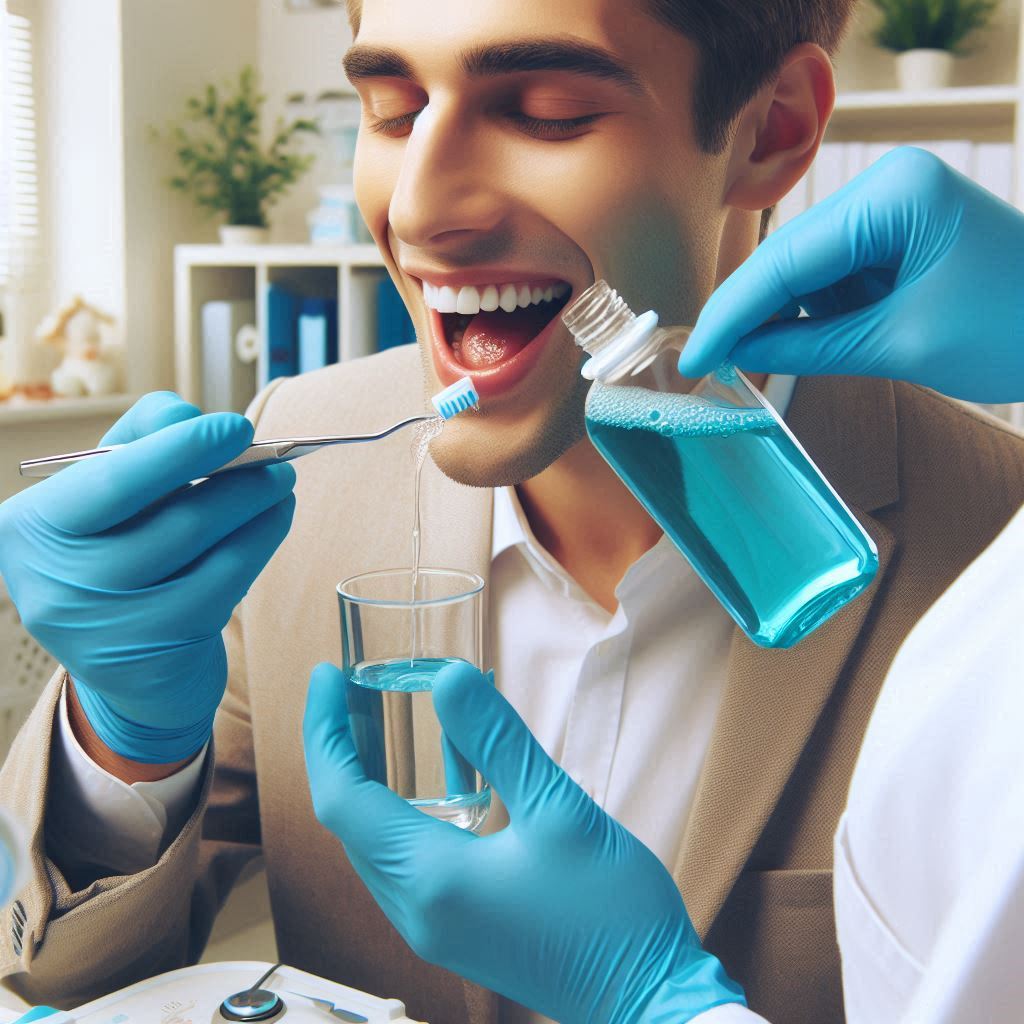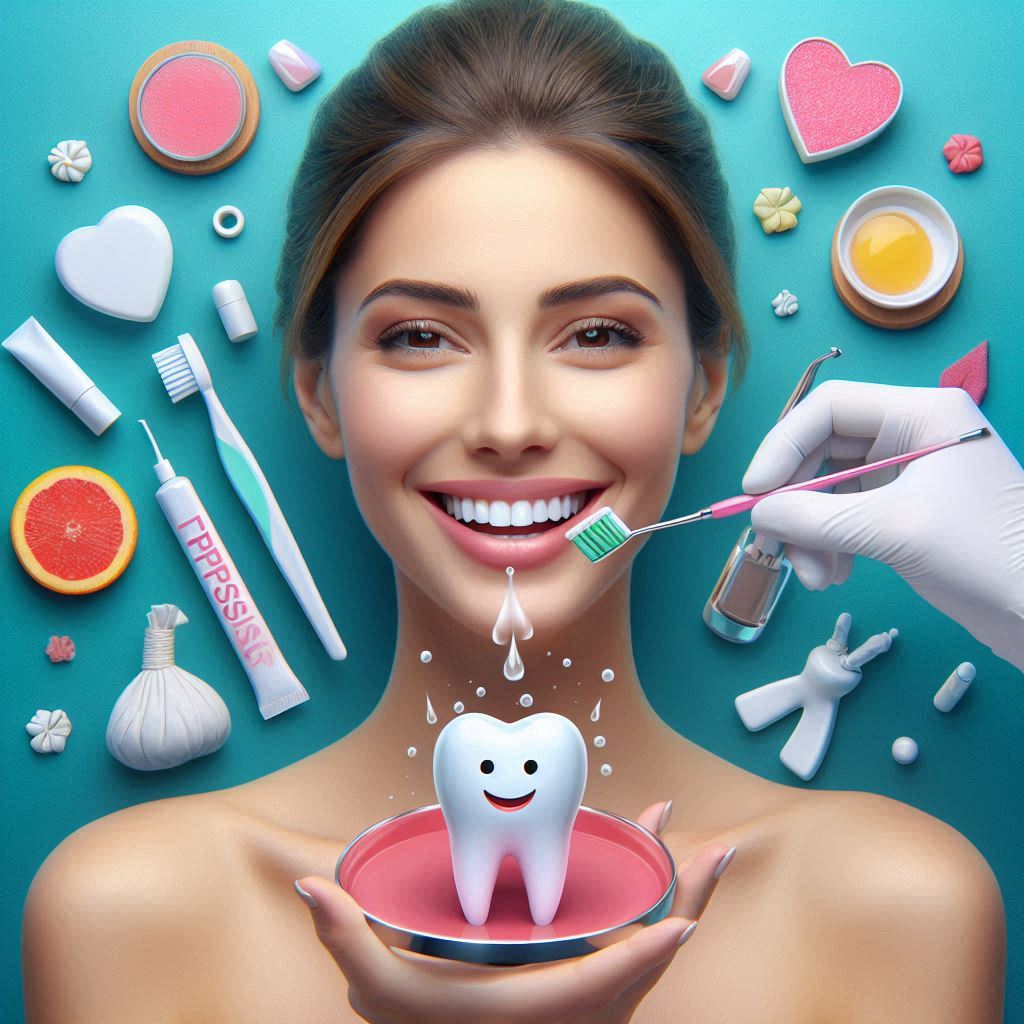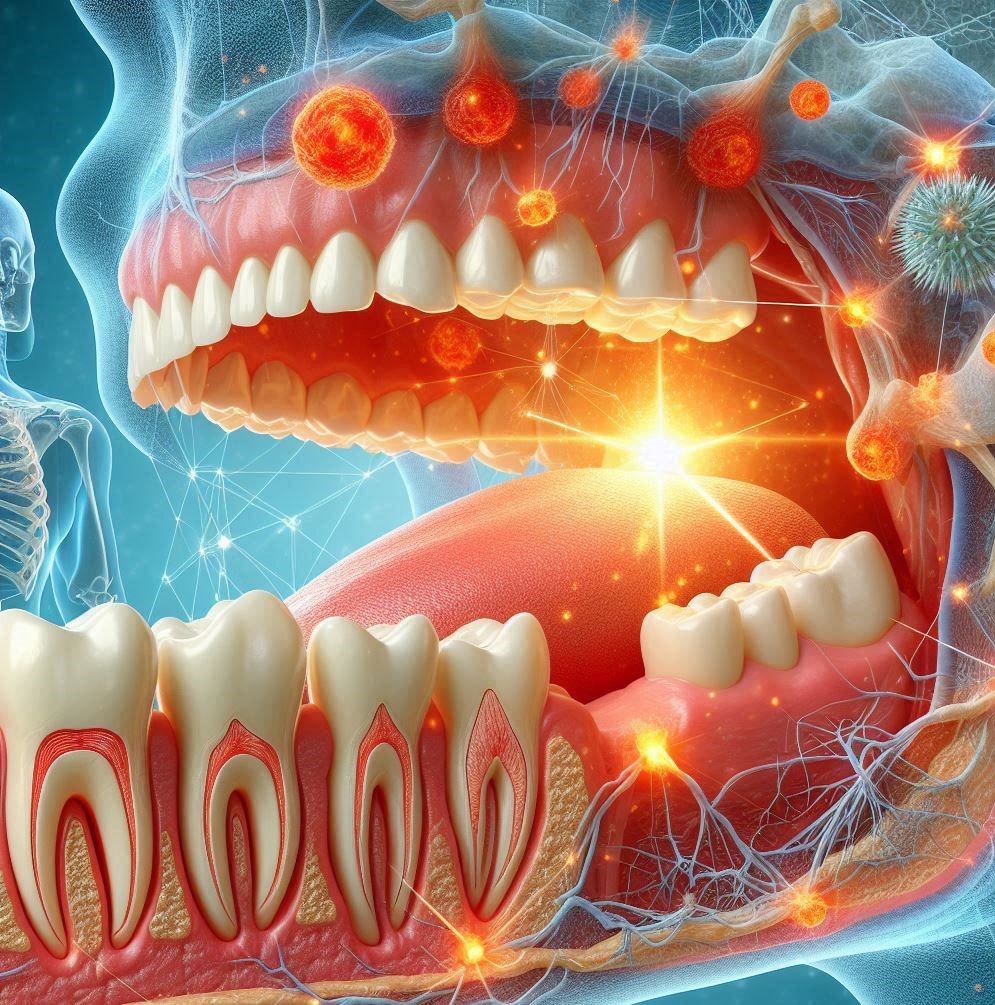Introduction
Oral hygiene is a crucial aspect of overall health, impacting not just the mouth but the entire body. Maintaining proper dental care practices, including brushing, flossing, and regular check-ups, is essential for preventing cavities, gum disease, and other oral health issues. However, one often debated addition to the daily oral care routine is mouthwash. Mouthwash is marketed as a quick fix to bad breath, but does it truly play a significant role in maintaining oral hygiene, or is it simply a cosmetic product?
In this guide, we’ll delve deep into the role of mouthwash in oral hygiene, exploring its benefits, potential risks, and whether or not it’s necessary for a healthy smile. From freshening breath to potentially preventing cavities and gum disease, mouthwash has been a part of oral care routines for decades. But is it really essential, or can it be replaced with other methods of dental care? Let’s take a closer look at this widely used but often misunderstood product.
The Evolution of Oral Hygiene Practices
Oral hygiene is a practice that dates back to ancient civilizations, long before modern toothbrushes and mouthwashes were invented. Early forms of oral care were quite different from what we use today, but the underlying desire for fresh breath and healthy teeth has remained constant.
Ancient Oral Hygiene Practices
In ancient Egypt, people used frayed twigs and branches as rudimentary toothbrushes. They also employed various natural substances like crushed herbs, salt, and charcoal to clean their teeth and freshen their breath. The Greeks and Romans also had similar practices, incorporating abrasives like crushed bones and oyster shells into their oral care routines.
Medieval and Early Modern Oral Care
By the Middle Ages, people in Europe used mouth rinses made from herbs and vinegar to prevent bad breath and soothe gum ailments. However, these methods were still quite rudimentary and largely ineffective. The real shift in oral hygiene came in the late 19th century with the introduction of modern dental products.
Modern Innovations in Oral Care
In the early 20th century, the commercial production of toothpaste and toothbrushes took off, significantly improving oral hygiene practices. However, mouthwash became widely available only in the mid-20th century. Originally marketed as a solution for bad breath, mouthwash evolved into a product that promised additional benefits, including the prevention of gum disease, plaque, and cavities.
What is Mouthwash?
Mouthwash, also known as an oral rinse, is a liquid product designed to be swished around in the mouth for a variety of purposes related to oral hygiene. It typically contains active ingredients that aim to combat bacteria, freshen breath, or strengthen enamel. While the primary function of mouthwash is to improve the cleanliness and appearance of the mouth, it may also serve therapeutic purposes, such as helping with oral infections or post-surgical care.
Types of Mouthwash:
- Cosmetic Mouthwash:
- Primarily designed to provide a temporary solution for bad breath.
- Contains aromatic agents or flavoring substances such as mint, cinnamon, or citrus, but does not offer long-term antimicrobial or therapeutic effects.
- Typically used for a quick refresh of the mouth, offering instant relief from odors without addressing the underlying causes of bad breath.
- Therapeutic Mouthwash:
- Contains active ingredients aimed at addressing various oral health issues.
- These mouthwashes target bacteria, plaque buildup, gum inflammation, and other conditions, providing both preventive and treatment benefits.
- Examples include fluoride-based mouthwashes that help prevent cavities, antiseptic mouthwashes with ingredients like chlorhexidine to treat gum disease, and products formulated for conditions like gingivitis and oral infections.
Common Ingredients in Mouthwash:
- Antiseptic Agents (e.g., Chlorhexidine, Cetylpyridinium Chloride):
- These compounds play a key role in reducing harmful bacteria in the mouth and decreasing plaque buildup.
- Antiseptic mouthwashes are particularly beneficial for treating gum disease and maintaining oral hygiene in individuals at risk of infections.
- Fluoride:
- Fluoride strengthens the enamel of teeth and helps remineralize areas that have been weakened by acids or early decay.
- It is an essential ingredient in cavity prevention and is often included in therapeutic mouthwashes for individuals looking for extra protection against tooth decay.
- Alcohol:
- Alcohol is frequently used in mouthwashes as a solvent for other active ingredients, helping to dissolve and evenly distribute them.
- However, it can cause dryness and irritation, particularly for people with sensitive mouths or dry mouth conditions.
- Essential Oils (e.g., Eucalyptol, Menthol):
- These oils provide antimicrobial properties, helping to fight bacteria and freshen breath.
- They also offer a cooling sensation, which contributes to the feeling of a refreshed mouth.
- Herbal Extracts (e.g., Aloe Vera, Tea Tree Oil):
- Often included in natural or alcohol-free mouthwashes, these ingredients have soothing and healing properties, promoting gum health and minimizing irritation.
Benefits of Mouthwash
Breath Freshening
The most immediate benefit of mouthwash is its ability to temporarily freshen breath. Many people use mouthwash for its pleasant minty flavor and refreshing sensation that masks bad breath. Breath freshening is often a cosmetic benefit, but it can be essential for individuals who experience halitosis (chronic bad breath). The active ingredients in mouthwash, such as menthol and eucalyptus, create a cool, fresh feeling in the mouth that lasts for hours.
Prevention of Plaque Build-Up
Plaque is a sticky, colorless film of bacteria that forms on the teeth and gums. If left untreated, it can lead to gum disease, cavities, and tooth decay. Mouthwash, especially those containing antimicrobial ingredients, can help reduce plaque accumulation. Regular use can help decrease the amount of plaque in the mouth, making it an essential component in a preventative oral care routine.
Fighting Bacteria and Germs
Mouthwash is effective in reducing the number of harmful bacteria in the mouth, which can prevent gingivitis, a common gum disease. The antiseptic agents found in therapeutic mouthwashes work by killing bacteria that cause gum inflammation, bleeding, and tooth decay. Chlorhexidine, for example, is a popular antimicrobial mouthwash used to treat gingivitis and periodontitis.
Cavity Prevention (Fluoride Mouthwashes)
Mouthwashes containing fluoride are an effective tool for cavity prevention. Fluoride helps remineralize tooth enamel, which can become weakened over time due to acids from food and bacteria. By strengthening enamel, fluoride mouthwashes can reduce the risk of cavities and even reverse early stages of tooth decay. This makes fluoride mouthwashes especially beneficial for people prone to cavities or for those who want extra protection for their teeth.
Post-Surgical/Oral Procedure Care
For individuals who have undergone dental surgery or procedures such as tooth extractions, implants, or root canals, mouthwash can be an effective post-care product. Antiseptic mouthwashes help keep the surgical site clean and reduce the risk of infection. They also promote faster healing by keeping harmful bacteria at bay. However, it is essential to follow a dentist’s instructions on the type of mouthwash and frequency of use.
Are There Risks or Drawbacks to Using Mouthwash?
While mouthwash offers several benefits, there are also potential risks associated with its use, especially when it is not used properly or overused.
Alcohol Content in Mouthwash
Many commercial mouthwashes contain alcohol, typically in concentrations ranging from 10-27%. While alcohol helps dissolve the active ingredients and acts as an antiseptic, it can also have side effects. Alcohol-based mouthwashes can cause dry mouth, irritate sensitive tissues, and even contribute to the development of canker sores. For individuals with dry mouth or sensitive oral tissues, alcohol-free mouthwash may be a better alternative.
Not a Replacement for Brushing
It’s important to understand that mouthwash should not replace traditional oral hygiene practices like brushing and flossing. While mouthwash can aid in reducing bacteria and freshening breath, it does not remove plaque or food particles from the teeth as effectively as brushing. For optimal oral health, mouthwash should be used in conjunction with regular brushing and flossing.
Potential Long-Term Effects
Some studies have raised concerns about the long-term use of mouthwashes with high alcohol content. There is some evidence suggesting that excessive use of alcohol-based mouthwashes might alter the balance of oral flora, leading to an overgrowth of harmful bacteria. Additionally, some studies have linked alcohol-based mouthwashes to an increased risk of oral cancer, though this connection remains controversial and requires more research.
Sensitive Individuals: Children and People with Certain Health Conditions
Mouthwash is generally not recommended for young children, as they may accidentally swallow it, leading to potential toxicity. Additionally, some people with conditions like asthma, dry mouth, or a history of oral sores may find certain mouthwashes irritating or uncomfortable. Always consult a healthcare professional or dentist before starting any new oral hygiene products, especially for sensitive individuals.
Cost and Environmental Impact
Mouthwash is often considered a convenience product, but the environmental impact and cost can add up. Many mouthwashes come in plastic bottles that contribute to waste, and the regular purchase of mouthwash can be an ongoing expense. For those seeking more sustainable oral hygiene solutions, natural or homemade alternatives may be worth considering.
Mouthwash Alternatives
Mouthwash is not the only option for maintaining good oral hygiene. Several alternatives can provide similar benefits without some of the potential drawbacks.
- Natural Mouthwashes: Herbal mouthwashes made from essential oils like tea tree oil, peppermint, and eucalyptus can offer antibacterial and antimicrobial properties. Natural mouthwashes are often alcohol-free and gentle on the mouth, making them a good choice for individuals with sensitive mouths or dry mouth conditions.
- Homemade Remedies: Some individuals prefer to make their own mouthwash at home using common household ingredients like baking soda, salt, and water. These simple mixtures can help neutralize odors and reduce bacteria, though they may not offer the same level of protection as commercial mouthwashes. Always be cautious when making homemade remedies to avoid causing harm to the mouth or gums.
- Diet and Hydration as Oral Care Tools: The foods and drinks you consume play a significant role in your oral health. Drinking plenty of water throughout the day helps rinse away food particles and bacteria, reducing the need for mouthwash. Additionally, consuming foods rich in fiber, vitamins, and minerals can promote healthy teeth and gums. Crunchy fruits and vegetables, like apples and carrots, naturally clean the teeth and help freshen breath.
How to Choose the Right Mouthwash for Your Needs
Understanding Labels: Cosmetic vs. Therapeutic Mouthwash
When choosing a mouthwash, it’s essential to distinguish between cosmetic and therapeutic options. Cosmetic mouthwashes are primarily designed to provide temporary breath freshening and mask bad odors. These mouthwashes usually contain flavoring agents like mint and do not address underlying oral health problems. On the other hand, therapeutic mouthwashes contain active ingredients meant to target specific oral health concerns, such as controlling plaque, reducing gum inflammation, or preventing cavities. It’s important to consider your unique oral health needs before selecting a mouthwash to ensure the right benefits.
Consulting Your Dentist
If you’re uncertain about which mouthwash is most suitable for your needs, it’s best to consult with your dentist. A dental professional can recommend a product that aligns with your oral health concerns, whether you need to tackle gum disease, prevent cavities, or simply freshen your breath. Their guidance ensures that you select the most effective mouthwash for your specific situation.
Mouthwash for Specific Conditions
Mouthwashes serve different purposes based on individual needs. For cavity prevention, fluoride mouthwashes are an excellent choice, as fluoride helps strengthen tooth enamel and combat decay. On the other hand, antiseptic mouthwashes are ideal for individuals dealing with gum disease or persistent bad breath, as they contain active ingredients designed to reduce bacteria and promote healthier gums. Always choose a mouthwash that directly addresses your oral health condition.
Mouthwash in the Context of Overall Oral Health
Mouthwash should be seen as a supplement, not a replacement, to a full oral care routine. A comprehensive oral hygiene regimen includes brushing, flossing, regular dental visits, and professional cleanings. Mouthwash can enhance these practices, but it’s most effective when used in combination with other preventive measures.
Regular Dental Check-ups
Routine dental check-ups are crucial for maintaining optimal oral health. During these visits, dentists can identify early signs of dental problems, such as cavities, gum disease, or oral infections, allowing for timely treatment. They can also assess your individual oral hygiene habits and provide personalized recommendations, including advice on which mouthwash may best suit your needs. Incorporating mouthwash into your daily routine, as advised by your dentist, can enhance your oral care regimen by helping prevent plaque buildup, freshen breath, and address specific concerns like gum inflammation or cavity prevention, contributing to overall oral health.
Oral Health and Overall Health Connection
Maintaining good oral hygiene is not just about oral health; it’s also linked to overall well-being. Poor oral health has been associated with systemic conditions like heart disease, diabetes, and respiratory issues. Regular use of mouthwash can contribute to your overall health by preventing oral infections and promoting better hygiene.
Conclusion
Mouthwash can be an effective addition to your oral hygiene routine, but it is not absolutely necessary for everyone. While mouthwash offers several benefits, including breath freshening, plaque prevention, and antibacterial effects, it should be used in conjunction with proper brushing and flossing for the best results. For those with specific oral health concerns, such as gum disease or cavities, mouthwash can offer additional protection and support.
Ultimately, the key to a healthy smile lies in maintaining a balanced oral care routine, including regular brushing, flossing, and professional dental care. Whether or not mouthwash is a necessary part of your routine depends on your individual needs, preferences, and oral health goals. Always consult your dentist for personalized recommendations on the best oral hygiene practices for you.
SOURCES
Cohen, J. S. (2022). The role of fluoride in oral health: A historical perspective. Journal of Dental Research, 15(4), 210-225.
Jones, A. B., Smith, R. T., & Williams, L. H. (2021). The effects of mouthwash on oral flora: A clinical trial. International Journal of Oral Care, 38(3), 145-153.
McDonald, F. H. (2023). Mouthwashes and oral hygiene: Efficacy and consumer habits. Dental Hygiene Review, 12(2), 87-99.
Thomas, M. P., & Edwards, L. T. (2020). Alcohol-based vs. alcohol-free mouthwashes: Comparative effects on dry mouth. Journal of Clinical Dentistry, 44(5), 167-172.
Roberts, D. E., Harrison, C. G., & Levy, T. M. (2019). The impact of mouthwash on plaque control and gum disease prevention. Oral Health Studies, 29(1), 40-55.
Williams, J. A. (2021). The benefits and drawbacks of therapeutic mouthwashes in dental care. Modern Dentistry Review, 45(6), 302-312.
Hughes, R. M. (2021). Gum health and the use of antimicrobial mouthwashes in preventing gingivitis. American Journal of Periodontology, 48(3), 222-229.
Kumar, R. V., & Singh, H. K. (2022). A review of herbal mouthwashes and their effectiveness compared to commercial products. International Journal of Natural Remedies, 14(1), 111-120.
Nelson, A. R. (2020). Oral hygiene products and their environmental implications. Journal of Sustainable Healthcare, 35(2), 79-85.
Martin, S. A., Robinson, T. M., & Davies, J. P. (2023). Fluoride mouthwashes and their role in cavity prevention. Oral Health Research Journal, 16(4), 120-128.
Davis, M. S. (2021). The relationship between oral health and systemic diseases: An overview. Clinical Dentistry Today, 42(7), 400-410.
HISTORY
Current Version
February 6, 2025
Written By:
SUMMIYAH MAHMOOD




